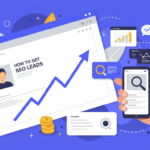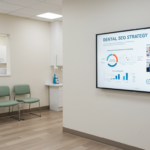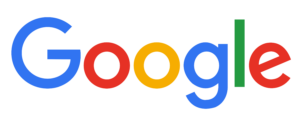What is PPC in Digital Marketing?
Pay-Per-Click (PPC) advertising is one of the most effective tools in a marketer’s toolkit. It’s a form of online marketing where advertisers pay a fee each time their ad is clicked. Essentially, you’re buying visits to your website rather than trying to earn them organically. Sounds simple, right? But there’s much more to PPC than just placing an ad and hoping for the best.
The Basics of Pay-Per-Click (PPC) Advertising
Defining PPC
At its core, PPC is a model of internet marketing where advertisers bid to have their ads shown on search engines, social media platforms, and other websites. The “pay-per-click” concept means that businesses only pay when someone clicks on their ad. It’s a cost-effective way of driving traffic, but only when done right.
If you want to learn more about what PPC is, then click here to read our in-depth guide.
How PPC Works
When a user types a keyword into a search engine, a PPC auction takes place. Advertisers bid on keywords they believe their audience will use. The higher your bid (and the better your ad quality), the more likely your ad will appear at the top of the search results page. Each time a user clicks on your ad, you pay a fee. If you’re selling a product or service, this cost can be worth it if that click results in a sale or conversion.
Key Platforms for PPC
There are several platforms where businesses can run PPC ads. The most popular is Google Ads, which dominates the market. Bing Ads is another option, and for those looking to target specific demographics or industries, platforms like Facebook Ads, LinkedIn Ads, and Twitter Ads are great for PPC campaigns. Each platform has its own nuances, but the principles remain the same.
The Importance of PPC in Digital Marketing
Why PPC is Vital for Businesses
PPC gives you instant visibility. Unlike SEO, which can take months to yield results, PPC allows you to jump to the top of the search results almost immediately (if your bid is right). This makes it perfect for businesses looking for quick results, whether it’s launching a new product or trying to increase brand awareness.
Organic vs. Paid Search: The Key Differences
With organic search, businesses rely on optimising their website and content to rank higher on search engine results pages (SERPs) over time. In contrast, PPC is immediate, though it comes at a cost. Both are essential to a balanced digital marketing strategy, but PPC is often favoured for faster results.
Key Components of a PPC Campaign
Keywords and Search Intent
Keywords are the foundation of PPC. To create an effective campaign, you need to understand what your audience is searching for and why. Tools like Google Keyword Planner can help you find relevant keywords, but understanding the intent behind those searches (whether users are looking to buy, learn, or simply browse) is crucial to your campaign’s success.
Bidding Strategies
Your bid determines where your ad appears on a search engine results page (SERP). But there’s more than one bidding strategy you can use. Some businesses opt for manual bidding, where they control their bids down to the penny. Others use automated bidding, allowing platforms like Google Ads to adjust bids for optimal results based on the campaign’s goals.
Quality Score
Google doesn’t just rank ads based on bids; it also considers the quality of the ad. The better your Quality Score (a measure based on ad relevance, click-through rate, and landing page quality), the less you might have to pay per click.
Ad Extensions
Ad extensions are extra snippets of information that can be added to your ad. These can include additional links, phone numbers, or location information. They make your ad more useful to users and can improve your click-through rate (CTR).
The Role of PPC in a Marketing Funnel
PPC for Brand Awareness
Even if users don’t click on your ad, seeing your business name at the top of a search page can increase brand awareness. PPC is a powerful tool for putting your brand in front of potential customers.
PPC for Lead Generation
One of the main goals of PPC is to generate leads. By targeting specific keywords and tailoring ads to meet the needs of your audience, you can drive relevant traffic to your site and convert that traffic into leads.
PPC for Conversions
Whether you want to sell products, book services, or get users to sign up for a newsletter, PPC can be used to push potential customers towards conversions. With the right ad copy and landing page, you can increase your chances of turning clicks into conversions.
Common PPC Metrics You Should Know
Cost-Per-Click (CPC)
This is the amount you pay each time someone clicks on your ad. Keeping track of your CPC is essential for managing your budget and ensuring you’re not overspending on low-performing keywords.
Click-Through Rate (CTR)
Your CTR is the percentage of users who click on your ad after seeing it. A high CTR indicates that your ad is relevant to the searcher and appealing enough for them to click.
Conversion Rate
This metric measures how many of the people who clicked on your ad took the desired action, whether that’s making a purchase, signing up for a service, or downloading an app.
Return on Ad Spend (ROAS)
ROAS measures the revenue generated from your PPC campaign versus the amount spent on ads. A higher ROAS means you’re getting more value out of your advertising spend.
Best Practices for PPC Campaigns
Targeting the Right Audience
PPC is all about getting your ads in front of the right people. By using tools like audience targeting, geolocation, and device targeting, you can make sure that your ads are only shown to users who are most likely to convert.
Writing Effective Ad Copy
Your ad copy needs to grab attention, clearly convey your message, and include a strong call to action. Test different variations to see which resonates best with your audience.
Landing Page Optimisation
A well-designed landing page is crucial for turning clicks into conversions. Ensure that your landing page matches the intent of your ad and provides a smooth user experience.
Read this blog for a step-by-step guide on how to activate PPC campaigns.
How PPC Fits into an Overall Digital Marketing Strategy
PPC isn’t a standalone strategy. It works best when integrated with other digital marketing efforts like SEO, content marketing, and social media. While PPC brings quick results, long-term success often requires a mix of organic and paid efforts.
Challenges and Pitfalls in PPC
Common Mistakes in PPC Campaigns
One common mistake is not using negative keywords, which can prevent your ad from showing up for irrelevant searches. Another is not monitoring your campaign regularly. PPC requires ongoing optimisation to deliver the best results.
How to Avoid Wasting Your PPC Budget
Set clear goals, target the right audience, and track performance metrics regularly to ensure you’re not overspending on clicks that don’t convert.
Conclusion
In today’s fast-paced digital landscape, PPC is essential for businesses looking to drive traffic, increase brand awareness, and boost conversions. By understanding the basics of PPC, choosing the right strategies, and continuously optimising your campaigns, you can achieve measurable success and grow your business.
FAQs
PPC involves paying for ad placements, while SEO focuses on organically ranking in search engines without paying for clicks. Both are essential for a well-rounded digital marketing strategy.
Your budget depends on your goals, industry, and competition. It’s important to start with a manageable amount and adjust based on performance.
PPC can show results almost immediately, but optimising for the best performance may take several weeks.
Yes, PPC can be incredibly effective for small businesses, especially with local targeting options and smaller budgets.
Once you stop your PPC campaign, your ads will no longer appear, and traffic from paid search will stop. It’s important to balance PPC with organic efforts for sustainable growth.









